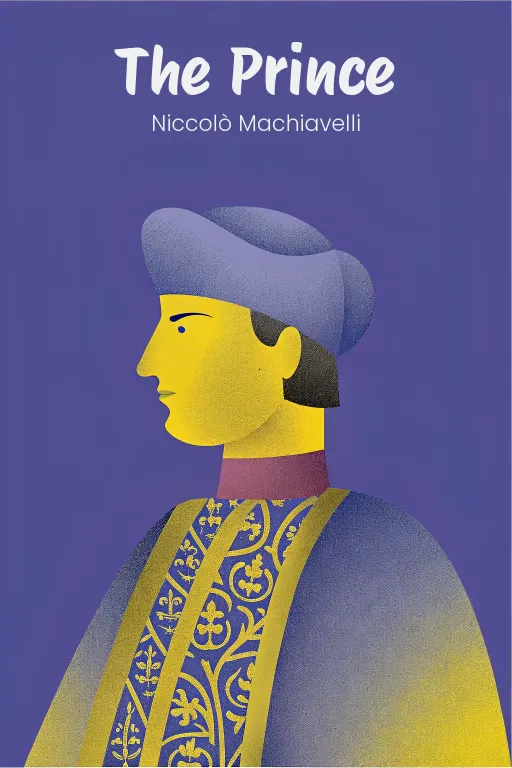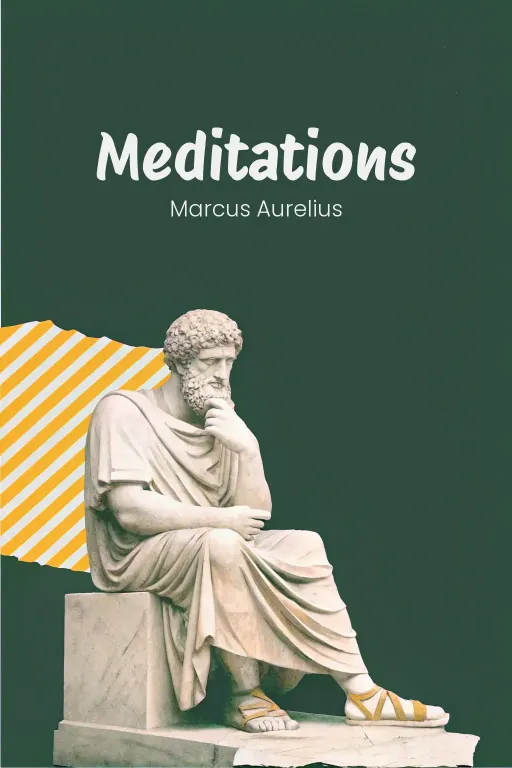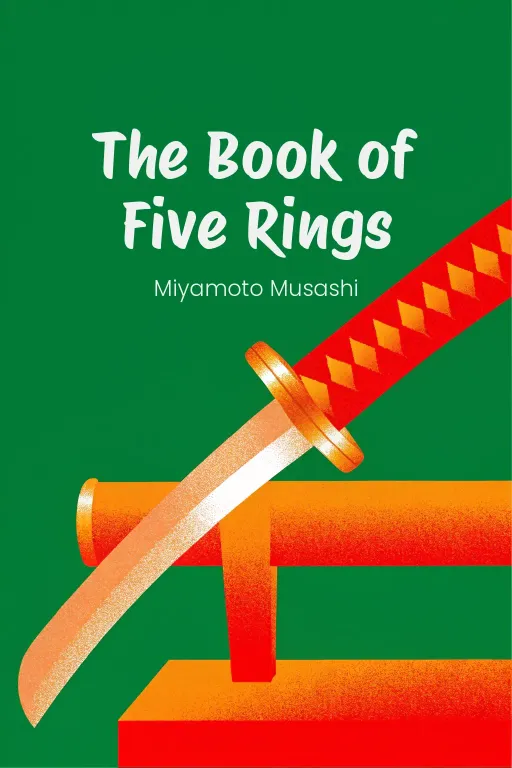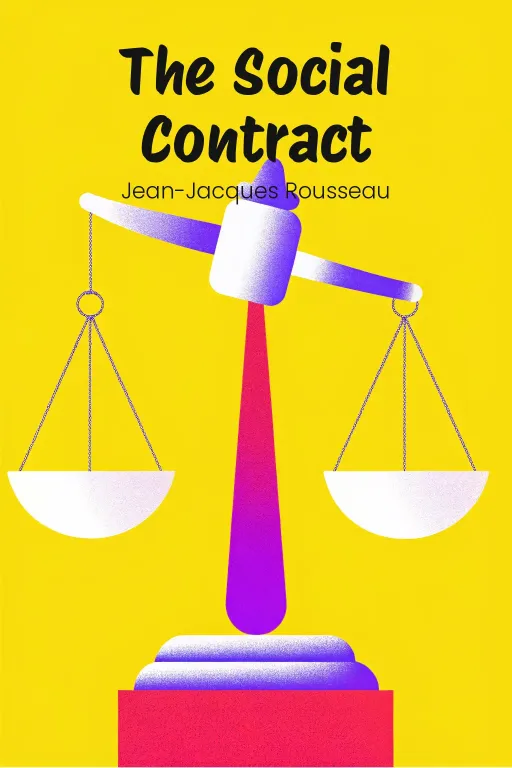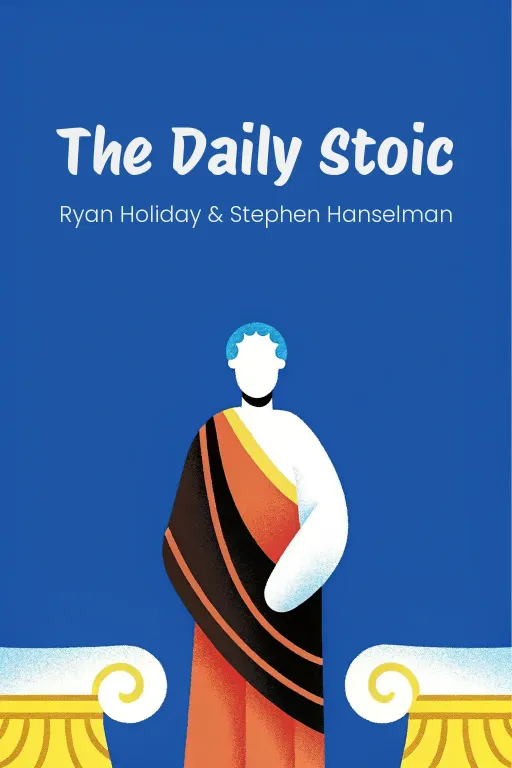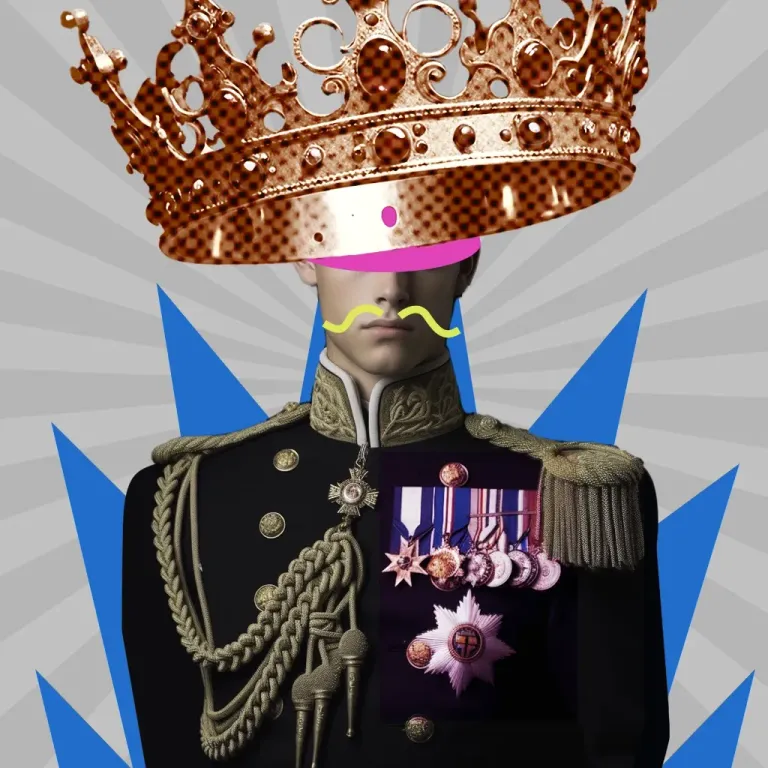
Mastering Chaos: A Leader's Edge
Podcast by The Mindful Minute with Autumn and Rachel
Introduction
Part 1
Autumn: Hey everyone, welcome back! Rachel: The Prince, huh? A handbook for anyone looking to be the hero or the villain. Whatever the motivation, it’s a classic, right? Autumn: Definitely a classic! The Prince delivers a very direct view of power and politics. It advises rulers on how to govern effectively. Machiavelli dives into human nature, explores how leaders balance being ruthless and compassionate, and why adapting to change is key. Rachel: Right. So, “How to stay in charge without, you know, losing your head.” Autumn: Precisely. We’re going to unpack three key ideas from the book. First, the balance between skill—what Machiavelli called virtù—and luck in leadership. Then, we’ll look at the moral challenges leaders face, how being ruthless can actually be an act of compassion sometimes. Rachel: And of course, the importance of a strong military. Because, let's be honest, without an army, a ruler is just a ship without a sail. Autumn: True! Whether you're leading a country, a company, or even just playing a game of Monopoly, The Prince has something to offer. So, where do we start? Rachel: Buckle up, everyone. Machiavelli's world isn't for the easily shocked.
The Interplay of Virtù and Fortune
Part 2
Autumn: Okay, let's dive into what Machiavelli saw as the core of leadership: “virtù” and “fortune”. They might sound like abstract concepts, but they really form the backbone of his political thinking. Rachel: So, basically, we're talking about skill versus luck, right? Autumn: In a way, yes. But it's more nuanced than that. “Virtù”, as Machiavelli defined it, isn't about being morally good. It’s about strength, adaptability, that kind of thing—the qualities that allow a leader to navigate the messy world of politics. “Fortune”, on the other hand, is everything a leader can't control. Think luck, chance, unexpected events, like natural disasters or a global pandemic. Rachel: Okay, I get it. “Virtù” is what you bring to the table—your skills and abilities. And “fortune” is how the world decides to throw curveballs at you. The key is to stay on top of things when chaos inevitably strikes. Autumn: Exactly! Machiavelli uses a great metaphor about “fortune” being like a raging river. It’s unpredictable and can cause a lot of damage. But when the river is calm, you can prepare for the next flood. You can build dams and try to control the flow. “Virtù” is all about being able to anticipate, prepare, and shape events instead of being swept away by them. Rachel: Right, but can you really prepare for every flood? I mean, it feels like “fortune” always has the upper hand. You can have all the “virtù” in the world, but what do you do when something completely unexpected happens? Like, say, a global pandemic hits, or—to keep it Machiavellian—your most powerful ally suddenly dies? Autumn: That's where the real tension in Machiavelli's idea lies. He doesn't think you can completely control “fortune”. Even the best leaders face risks. But the great ones are able to act decisively and adapt when things go wrong. Take Cesare Borgia, for example—Machiavelli loved him as an example of dealing with “virtù” and “fortune”. Rachel: Cesare Borgia! Now there's a name that sounds like a Shakespearean villain, and Machiavelli actually admired him? What’s the deal with that guy? Autumn: Well, Borgia was the illegitimate son of Pope Alexander VI, so he entered politics with a huge advantage thanks to his father's influence. But what made Borgia so interesting was how he used that advantage. He was incredibly strategic and ruthless. For example, when the Romagna region was a mess, he appointed a governor, Ramiro d'Orco, to bring order. D'Orco used brutal tactics, and when the people started to hate him, Borgia held a public execution of his own governor. This not only calmed things down but also made Borgia look like a fair and decisive leader. Rachel: Wait a second. So, he hires a guy to do the dirty work and then throws him under the bus to gain political points? That's some next-level manipulation. Autumn: It was twisted, sure, but it was politically effective. Machiavelli admired Borgia's ability to adapt and act decisively. But here's where “fortune” steps in. When Pope Alexander VI dies, Borgia loses his main source of power and can't maintain control. All his “virtù” couldn't save him from something he couldn't predict or control: his father's death. Rachel: So, in the end, “fortune” wins. All that planning and scheming wasn’t enough to stop the inevitable. Autumn: Well, Machiavelli would say that Borgia failed because he didn't go far enough in securing his own power. He relied too much on his father's influence instead of consolidating his own rule. Rachel: Right, because one of Machiavelli's key rules is never to depend on outside forces—whether it's a pope, an army of mercenaries, or just plain luck. You have to be self-reliant. Autumn: Exactly. And this idea of preparation and adaptability leads to some very practical advice. Leaders should focus on what they can control. That means building loyal armies, securing stable finances, and making bold moves when the opportunity arises. It's about improving your chances before “fortune” has a chance to ruin them. Rachel: But there's a certain level of cynicism baked into all of this. Even with all the preparation in the world, even if you're the smartest ruler around, there's a limit to how much control you really have. That's the part I struggle with. Is Machiavelli saying that leaders are basically at the mercy of “fortune” no matter what they do? Autumn: He's not that pessimistic. He knows there's always going to be some risk, but he also encourages leaders to be bold when facing uncertainty. He famously said that “fortune” favors the bold, right? He’s emphasizing that being hesitant and passive is more dangerous than taking calculated risks. Rachel: So it’s more about playing the hand you’re dealt with focus and confidence, rather than waiting around for everything to be perfect before you act. Autumn: Precisely. And that brings us back to the core of his argument. Machiavelli doesn't guarantee success, but he believes that leaders who master “virtù” have a much better chance of using “fortune” to their advantage. It's not about being optimistic or pessimistic, it's about being realistic. Leadership is a constant balancing act between control and chaos.
Pragmatism vs. Ethics in Leadership
Part 3
Autumn: So, understanding this balance, right, it really sets the stage for delving into the ethical dilemmas that leaders always face. And this is where Machiavelli “really” takes a bold step, doesn't he? He suggests that pursuing stability often means a leader has to navigate some pretty morally ambiguous territory—sometimes even, you know, set aside those conventional ethics. Which brings us to that infamous "ends justify the means" debate. Rachel: Ah, yes! The part where Machiavelli suddenly becomes every philosophy major’s favorite antihero, right? So, just to make sure we're clear, we're talking about those leadership decisions where, well, pragmatism just trumps ethics—where what's practical might not necessarily be what's moral. Autumn: Exactly. But, you know, contrary to popular belief, Machiavelli doesn't just throw ethics out the window entirely. What he “really” pushes for is flexibility. He's basically saying, "Look, morality matters—but it's more like a tool, not a constraint." If ethics are getting in the way of overall stability or even survival, then a leader might have to compromise, or even reject them outright, in order to secure the greater good for their state. Rachel: Okay, so give me an example here. How does this tension “really” play out in history? Autumn: So, think about Rachelus Aurelius. He was this iconic moral philosopher, full of compassion and those Stoic ideals. But his actual governance revealed the pitfalls of, you know, clinging too closely to just ethical ideals. Aurelius “really” believed in virtue, and he always operated with humanity, fairness, and a deep sense of compassion, even when the empire was facing enormous pressure. Sounds pretty noble, right? Rachel: Noble, sure. But didn’t things kind of fall apart during his reign? I mean, Gladiator movies aside, didn't his son Commodus end up squandering everything? Autumn: Exactly. Despite all his ideals, Aurelius struggled to “really” maintain the stability of the Roman Empire. You know, there were external pressures—like wars with Germanic tribes—and internal strains, like that financial instability. His ethical leadership earned him admiration, sure, but it also left him susceptible to exploitation. He was compassionate, but also vulnerable, and he placed his trust in people who ultimately failed him. And worst of all, he, you know, left the empire in the hands of Commodus—a disastrous ruler who basically prioritized personal indulgence over effective governance. Rachel: So essentially, Aurelius’s morality created an empire of sandcastles—beautiful to look at, but pretty easy for the tide to just sweep away. Autumn: Yeah, that's one way to put it. Aurelius “really” reminds us of what Machiavelli actually warns against: when leaders are too idealistic, they might secure their own personal virtue, but they risk, you know, the collapse of their state. Rachel: Okay, so Aurelius is, like, the "too moral" cautionary tale. But what happens when a leader goes the opposite direction and leans hard into pragmatism? Autumn: Well, that would be Septimius Severus. He's like the anti-Aurelius—a ruler who fully embraced those Machiavellian ideals of pragmatism. He rose to power during a time of total chaos in Rome, and instead of relying on public goodwill, he consolidated his power through fear and decisive action. Rachel: Let me guess—his version of governance wasn’t exactly warm and fuzzy. Autumn: Far from it. But Severus understood that loyalty was paramount, especially from the military. So he prioritized them over the civilian population, granting them wealth and privileges. And to deal with any political threats, he systematically eliminated any rivals—ruthlessly, but efficiently. And yet, Severus did manage to stabilize Rome after years of just utter chaos. Rachel: But there's gotta be a cost to that kind of rule, right? I mean, fear works... until it doesn't. Autumn: Exactly! Severus’s pragmatism ensured immediate stability, but it came with some pretty serious long-term consequences. His favoritism toward the military, for example, empowered them at the expense of Rome's broader institutions, and it set a precedent for future leaders to rely way too heavily on the army. And this, of course, led to instability later on, as rulers became totally dependent on maintaining military goodwill, sometimes at the cost of civilian welfare. Rachel: So, where does this leave us? Aurelius is too virtuous, and Severus is too pragmatic. It seems like Machiavelli is trying to point us toward a middle ground—you know, to navigate those ethical dilemmas carefully, but not let morality just completely immobilize you. Autumn: Exactly. Machiavelli’s most famous insight—that it’s ultimately better to be feared than loved—captures this balance perfectly. He's not advocating for cruelty, just for the sake of cruelty, or anything like that. Instead, he argues for what he called "selective cruelty"—using it sparingly, in a measured and calculated way, to avoid resentment while maintaining overall control. And in Severus’s case, this calculated fear worked well… for a while. Rachel: And then it all backfired when that fear turned into long-term resentment. So, leaders are basically walking a tightrope—too much idealism, and you end up like Rachelus Aurelius; and too much ruthlessness, and you end up like Severus. Autumn: Exactly, and that’s the big takeaway. When Machiavelli discusses these ethical dilemmas, he’s not saying leaders should just reject morality outright. He’s saying they need to weigh their decisions practically. Does this action actually serve the stability of the state? Does it secure peace and prevent any chaos? Rachel: And when the stakes are that high, some tough calls are inevitable, right? It’s not about being the “good” guy or the “bad” guy—it’s about being the effective guy. Autumn: Precisely. For Machiavelli, leadership is “really” about compromise, courage, and calculated risk-taking. Ethics matter, but they’re just one factor in the complex puzzle that is governance. And as difficult as those trade-offs might be, they’re essential to maintaining order in what can be a pretty unpredictable world.
Military Strength and Governance
Part 4
Autumn: This inherent tension, you know, it naturally leads to strategies for holding onto power, and that's where military strength comes in. Machiavelli just jumps right into it, calling the military the real foundation of any government. He argues that without a strong, loyal army, all the morality, skill, even luck, won't save a ruler's throne. For him, military strength is like the ultimate safety net. Rachel: And when he says "strong, loyal army," he definitely isn't talking about some mercenary bunch or soldiers borrowed from your allies. Because, as Machiavelli so directly puts it, relying on mercenaries or auxiliaries is practically handing your enemies the keys to your kingdom. Autumn: Exactly! He “really, really” does not like those forces. mercenaries only fight for money, so their loyalty disappears the second someone else offers them more—or, you know, when the battle gets tough. And auxiliaries? Even worse. Borrowing troops from another country means you're one bad turn away from becoming dependent or, well, being betrayed. Rachel: So, mercenaries will stab you in the back, auxiliaries will ditch you, and both will sink your ship faster than a captainless storm. Got it. But what's the alternative then? Autumn: Self-reliance. Machiavelli is adamant that rulers need to build their own armies—forces made up of their own citizens or subjects. It's not just practical; it's a deeper way to build loyalty. When citizens are defending their own land, they're personally invested. Arming them, it kind of ties them to the ruler, and that creates a shared responsibility for the state's survival. Rachel: It's like running a start-up. You want to hire people who genuinely care about the company rather than outsourcing important tasks to contractors who will bail at the first sign of trouble, right? Autumn: That’s such a good analogy. And for Machiavelli, it's not just about recruiting soldiers—it's about instilling discipline. A prince needs to develop cohesive, well-trained troops who respect the leader and effectively work together. He really looks up to the Roman Republic for this. Their citizen-army model allowed them to dominate for centuries. Rachel: Meanwhile, Renaissance Italy, where Machiavelli lived, that's the cautionary tale, right? Leaders in the Italian city-states kept depending on mercenaries, and, surprise, surprise, it didn't work out well for them. Autumn: Right. One famous example he brings up is the Kingdom of Naples during Queen Joanna II’s reign. To keep control during really messy internal politics, she used these condottieri—mercenary captains—like Muzio Attendolo Sforza. And sure, Sforza was skilled, but his loyalty was temporary, driven by ambition, not duty. He ended up putting his own power struggles ahead of the kingdom's well-being, creating even more chaos in Naples. Rachel: So, hiring Muzio was like letting a hungry wolf in to guard your house's door. Maybe he'll protect you for a moment, but at what cost, you know? Autumn: Exactly. Machiavelli’s point is that when leaders depend on people like Sforza, mercenaries motivated by their own interests, they're just swapping one problem for another. Instead of securing the state, they're opening the door to more chaos and making themselves vulnerable to power grabs. Rachel: Okay, so mercenaries are just a bad idea all around. What about auxiliaries? Does Machiavelli have any good examples of how that went wrong? Autumn: Oh, absolutely. Louis XII of France is Machiavelli's favorite example of auxiliary failures. When Louis wanted to conquer parts of Italy, he initially partnered with local forces, relying on alliances rather than fully committing his own troops. And at first, it seemed to work—he gained territory and influence—but as the political situation shifted, his allies had no reason to stick with him. Rival groups banded against the French, and Louis suddenly found himself isolated, humiliated, and forced to retreat. Rachel: So he basically outsourced all of his military goals to local allies who turned on him when things got tough. Like asking your neighbor to watch over your house while you're away, only to come back and find that they've sold all of your furniture. Autumn: That’s a perfect metaphor. And yes, Machiavelli sees Louis as a cautionary tale of misplaced trust. Auxiliary forces are loyal only to the states that provide them. And once those interests change, disaster is sure to follow. Again, the lesson is still the same—if you want something actually done right, you just do it yourself. Rachel: Okay, so we know why mercenaries and auxiliaries aren't the answer. But let’s lock down the how. What exactly is it about armies that are controlled by the sovereign that makes them work when outside forces don't? Autumn: Well, armies controlled by the sovereign are rooted in trust, discipline, and shared stakes. By relying on citizen-soldiers, the leader ties military strength to the prosperity of that state, itself. Citizens have a real reason to defend their land, their homes, their families. That kind of loyalty? You just can't buy it with a soldier of fortune. Rachel: And it sounds like that loyalty is key to making the entire strategy work. A well-led, self-reliant army doesn't just defend the state against outside threats—it's also there to stop internal rebellions. It reinforces the prince's legitimacy, too. Autumn: Exactly, and Machiavelli makes this point a lot: strength leads to stability. A ruler with a strong and disciplined force doesn’t just survive —they thrive. Even just having the perception of power can deter enemies and unite people. As Machiavelli himself said, "A prince must lay strong foundations; otherwise, he will inevitably be destroyed." Rachel: But you know, Autumn, this all sounds great in theory. Build your army, keep them loyal, tie them to your government. But surely, there’s gotta be some kind of a cost, right? Armies are expensive. Plus, isn’t there a risk that arming your citizens could backfire? What will stop that force from being used for political upheaval? Autumn: Those are absolutely valid points, and Machiavelli doesn’t ignore them, either. He admits that governing armed citizens requires a lot of skillful leadership. If you fail to gain their trust or lose sight of their needs, the very force you put into place to protect your state could, in fact, become a threat. Managing that army is, essentially, managing loyalty. Rachel: Right, so it works as long as you keep your soldiers happy, disciplined, and loyal to you. Autumn: Precisely. It’s a delicate balance—the same kind of tension we see throughout all of Machiavelli’s advice. But in his view, the risks of a sovereign-controlled army are much lower than the dangers of relying on outside forces. Rachel: I guess it all comes down to his idea of self-reliance. Whether it’s governing or building armies, depending on anyone else other than yourself is the ultimate weakness. Autumn: Absolutely. For Machiavelli, a ruler’s power is only as strong as their ability to depend on their own resources—whether that be their leadership, their adaptable strategies, or, yes, a truly loyal army. It’s a timeless lesson on the importance of independence and preparation.
Conclusion
Part 5
Autumn: So, to recap, we've unpacked Machiavelli's three key lessons for leadership: mastering the interplay between virtù and fortune, walking the tightrope between pragmatism and ethics, and securing your position through a strong defense. These concepts, taken together, really form his strategy for effective leadership in a world that's inherently unpredictable, right? Rachel: Exactly. And if Machiavelli emphasizes one thing, it's this: power isn't about lofty ideals; it's about being able to adapt. Leaders can’t control everything that happens, but those who are bold in their actions, prepare thoroughly, and rely on their own capabilities are the ones who stand the best chance of succeeding, don't you think? Autumn: Definitely. But his advice also carries a warning, doesn't it? That leadership is a delicate balancing act. Too much idealism can leave an organization exposed, while being too ruthless can undermine its foundations. It's a constant negotiation to find that equilibrium. Rachel: It makes you think, doesn't it? Machiavelli's ideas, even though they were originally meant for Renaissance rulers, are surprisingly relevant today. Whether you're heading up a team, navigating a crisis, or simply making choices in your own life, his lessons on preparation, being pragmatic, and not being overly dependent on others are as important as ever. How might someone apply this to modern urban life? Autumn: That's the genius of Machiavelli, I think. He pushes us to look beyond simple right and wrong and to really grapple with some tough questions. What do we value more: stability or our principles? And how far are we prepared to go to achieve stability without completely giving up our principles? Rachel: Heavy, indeed, but crucial. So, the next time you're faced with a difficult decision, maybe try thinking like Machiavelli for a moment. Though, perhaps, leave the hiring of mercenaries and the throwing of people under the bus to consolidate power out of the equation. Autumn: Agreed! Leadership shouldn't be about being ruthless, but it absolutely needs to be about being resilient. Thanks for being with us today, and remember: fortune favors those who are bold—but only when they've done their homework! Until next time! Rachel: Absolutely. Until then, stay pragmatic, stay adaptable, and stay sharp!

